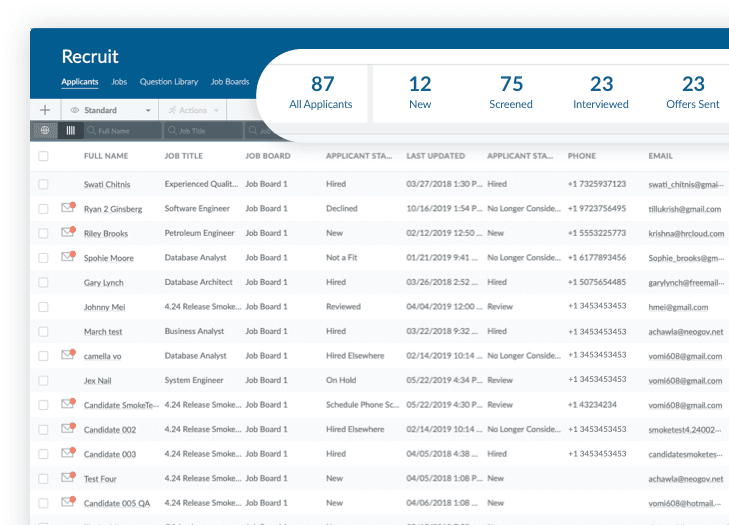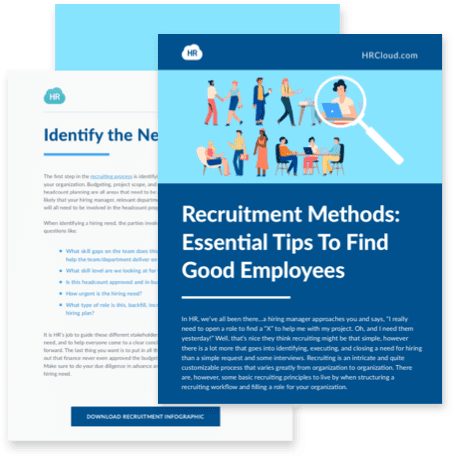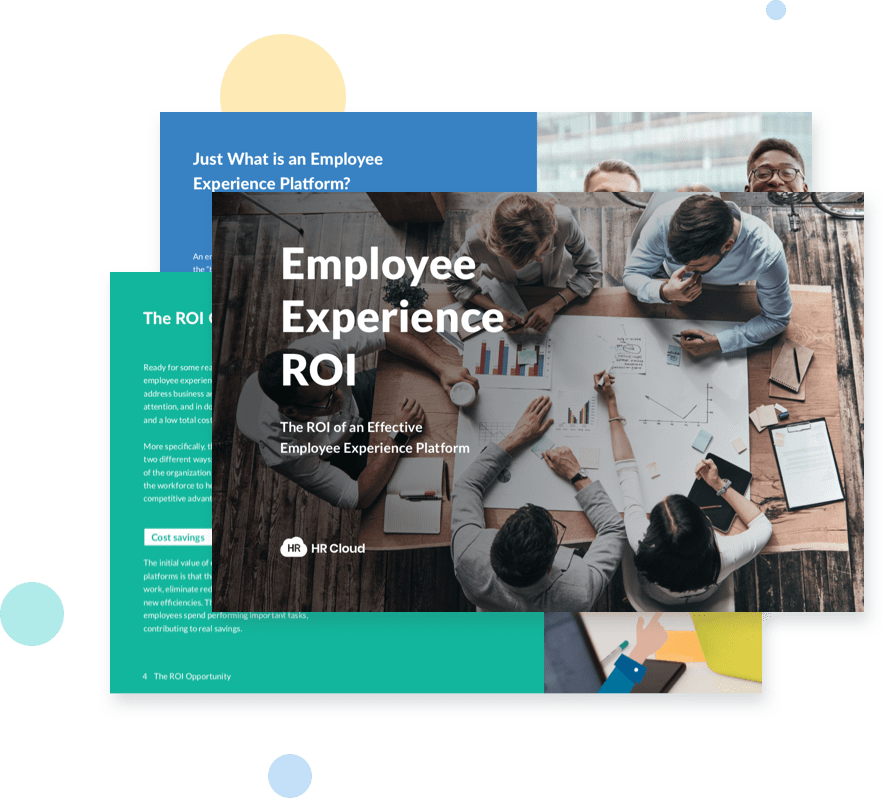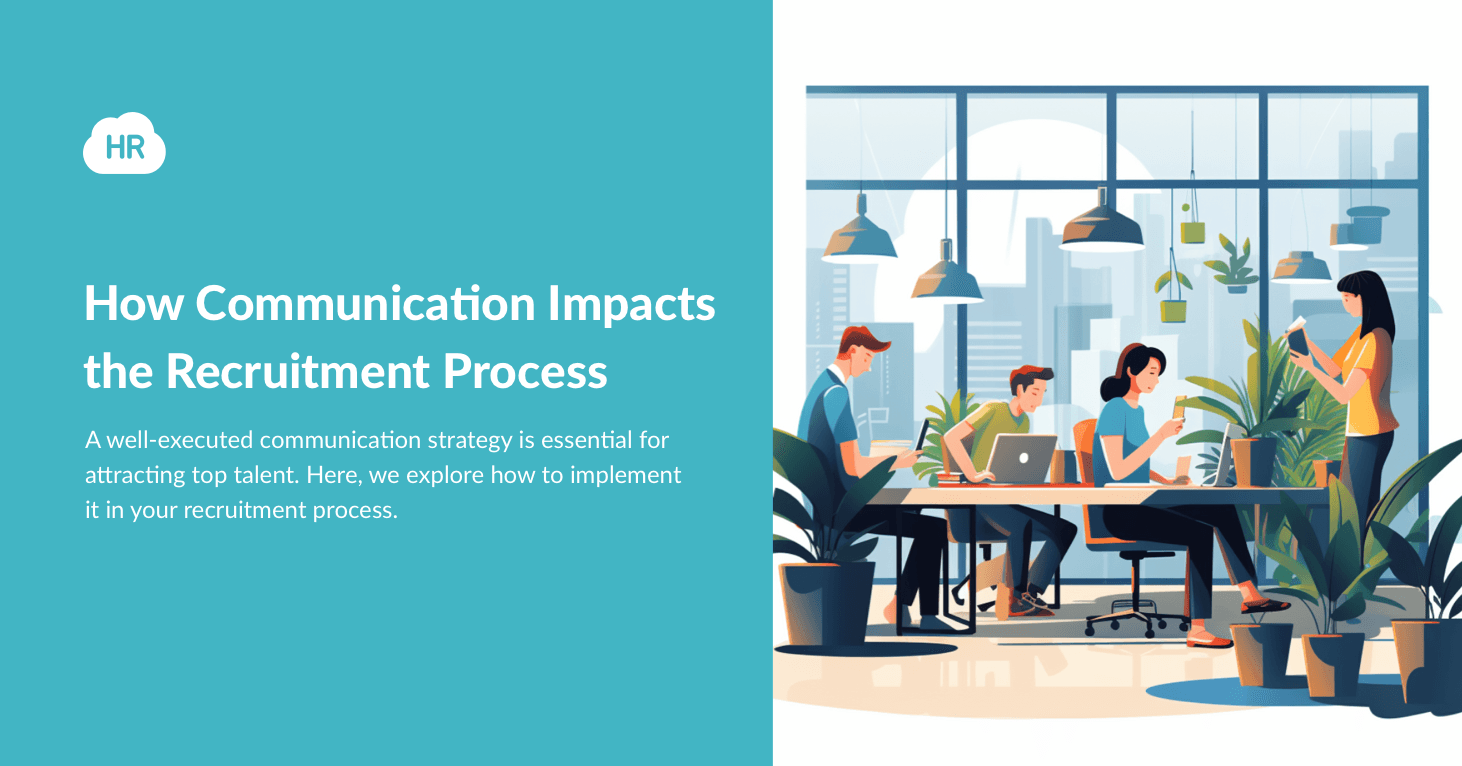Effective communication plays a crucial role in the recruitment process in today's competitive job market.
35% of respondents in Employ’s 2022 Job Seeker Nation Report cite poor communication and responsiveness from prospective employers as a key frustration within the job search process. A further 47% say great communication makes for a positive recruitment experience.
A well-executed recruitment communication strategy is thus essential for attracting and engaging top talent.
Here, we explore how effective communication affects your employee recruitment process. We’ll also discuss how to enhance your communication strategy for successful talent acquisition.
What is a Recruitment Communication Strategy?
A recruitment communication strategy is a plan mapping out how your company interacts with job seekers throughout the recruitment process. It highlights the communication modes and measures needed to adequately dispense information to candidates.
A clear recruitment communication strategy helps prevent disorganized or unstructured interactions between you and your candidates. It also eliminates sloppiness, unprofessionalism, and content gaps—all factors that may discourage talent from working for your company.
Why Communication Matters During Employee Recruitment
Here’s how two-way communication between your company and potential talent can improve employee recruitment and eventual retention.
Attracting and Engaging Top Talent
Well-written job descriptions accurately reflecting the role's responsibilities, requirements, and perks will be much more attractive to the right kind of candidate, so clear and compelling communication is vital to attract the highest quality applicants.
Furthermore, effective communication during the initial stages of the recruitment process creates a positive impression, and a great candidate experience improves your chances of getting the job seeker to work with your organization.
You may use several different channels, such as job advertisements, company websites, and social media platforms, to communicate available opportunities. It’s essential to ensure that these are readily accessible to your ideal employee so you’re attracting the right caliber of candidates.
Building a Positive Employer Brand
Effective communication during recruitment contributes to shaping and strengthening your brand as an employer.
A poor employer brand can discourage candidates from pursuing opportunities with your company. Plus, they may share their negative opinions with other job seekers and harm your ability to get top talent applying at all.
In this regard, communication impacts the recruitment process and shapes your employer's brand. As an HR team member, how you communicate your company's mission, values, culture, and growth opportunities matters a lot.
Clearly communicating organizational values, for example, will differentiate your brand from its competitors and appeal to candidates who align with your vision.
In addition, prompt and transparent communication throughout the recruitment process demonstrates respect for your applicants. It also enhances the candidate’s perception of your organization, promoting a positive employer brand reputation.
Ensuring a Smooth and Efficient Hiring Process
Clear communication makes the recruitment process seamless and frictionless as well. For example, timely updates and regular communication with candidates will help manage their expectations, keep them engaged, and maintain transparency.
Open and transparent communication surrounding the interview process will help prevent confusion and frustration. Well-communicated expectations enable candidates to prepare for each stage, leading to better outcomes on both sides of the hiring process.
Post Jobs, Evaluate Candidates,
and Hire the Best with Our
Applicant Tracking System
Learn More about Recruit
Proven Steps to Improve Your Communication Strategy
The key to leveraging communication for recruitment is to have a solid strategy for it. Below, we’ll walk you through some key steps for strengthening your recruitment communication plan.
Develop a Comprehensive Recruitment Communication Plan
Strategy is all about having a detailed plan for communication covering every step of the recruitment process. This plan will serve as your roadmap and guide as you interact with candidates throughout the recruitment period.
To draw up a recruitment communication plan, start by defining three key elements:
-
Your target audience
-
Their preferred communication channels
-
The key messages you want to convey
Then, craft a consistent and cohesive communication plan that encompasses multiple touchpoints. Consider engagement channels such as job postings, career websites, social media, email communications, and interviews. Keep your messages clear, concise, and aligned with your brand.
Optimize Job Descriptions
A job description is how you help candidates understand the role they’ll occupy in your company. It tells them what they need to understand about the job, the business, and everything else they must know to function well in the role.
As such, crafting job descriptions that accurately reflect the role and your company culture is crucial. Clearly outline the responsibilities, qualifications, and expectations you want to see in the ideal candidate. Doing this will help attract the right sort of applicants.
In addition, use language that’s engaging and easy to understand when creating your job description. Aim for simplicity in your messaging, avoiding jargon and unnecessary complexity.
It’s good practice to highlight the benefits and growth opportunities associated with the role. With this done, you should end the message with a clear call for candidates to apply.
Streamline Candidate Communication
The quality of your communication lies in how much information you can dispense with as little content as possible.
Job seekers shouldn’t have to read several pages of text or watch a lengthy video to get all the information they need to apply for the role. It’s about saying less and telling much.
You want to streamline all communications, cut out any excess, and only put out cogent information when necessary. More importantly, personalize communication whenever this is feasible to make candidates feel valued and respected.
In addition, establish clear communication channels for candidates to reach out with their questions or concerns. Respond promptly to inquiries and provide regular updates throughout the hiring process.
Lastly, leverage technology to automate communication where possible. For example, you may send automated confirmations, interview reminders, or status updates to candidates via business text messaging services or email.

To learn more about recruitment methods, download our ebook now.
Download nowTrain Recruiters and Hiring Managers on Effective Communication
Your strategy is only as good as its implementation. While it may sound impressive on paper, the individuals rolling out your plan may fluff its execution, rendering it useless. As such, you must train the rest of the HR team on effective communication.
Equip your recruiters and hiring managers with the necessary communication skills to fully engage with prospective employees. Also, train them on active listening, empathy, and clear messaging.
Encourage recruiters to provide constructive feedback to candidates even if they’re not selected. Doing this helps you foster positive relationships and maintain a positive employer brand.
Gather Feedback and Iterate
Feedback is necessary to adjust and improve your strategy. That’s why it's integral to your overall recruitment communication plan.
Regularly collect feedback from candidates about their experience during the recruitment process. Use these reviews to identify areas for improvement and make necessary adjustments to your communication strategy.
Continuously iterate and refine your approach to ensure your recruitment communication aligns with candidate expectations and market trends.
Optimize Your Recruitment Communication Strategy to Attract Top Talent
Now you understand the effect of communication on the recruitment process, you should begin implementing steps to solidify your strategy. The tips we discussed above will help you improve your interactions with potential employees.
Admittedly, communication is only one part of the puzzle when it comes to creating a great recruitment experience. Nonetheless, it’s a crucial piece, which you must get right to improve your company’s overall hiring process.

To learn even more about improving the employee experience and increasing your competitive advantage while providing a fast return on investment, download our ebook now.
Download nowAuthor Bio:
This article is written by a marketing team member at HR Cloud. HR Cloud is a leading provider of proven HR solutions, including recruiting, onboarding, employee communications & engagement, and rewards & recognition. Our user-friendly software increases employee productivity, delivers time and cost savings, and minimizes compliance risk.
Keep Reading
Retention Reset: How to Keep Your Best Talent in 2025
More employees are walking away from their jobs in 2025 not just for better pay, but for
The Most Common Hiring Mistakes in the Healthcare Industry
The hiring process can be tedious in the healthcare industry, and it may be tempting to

